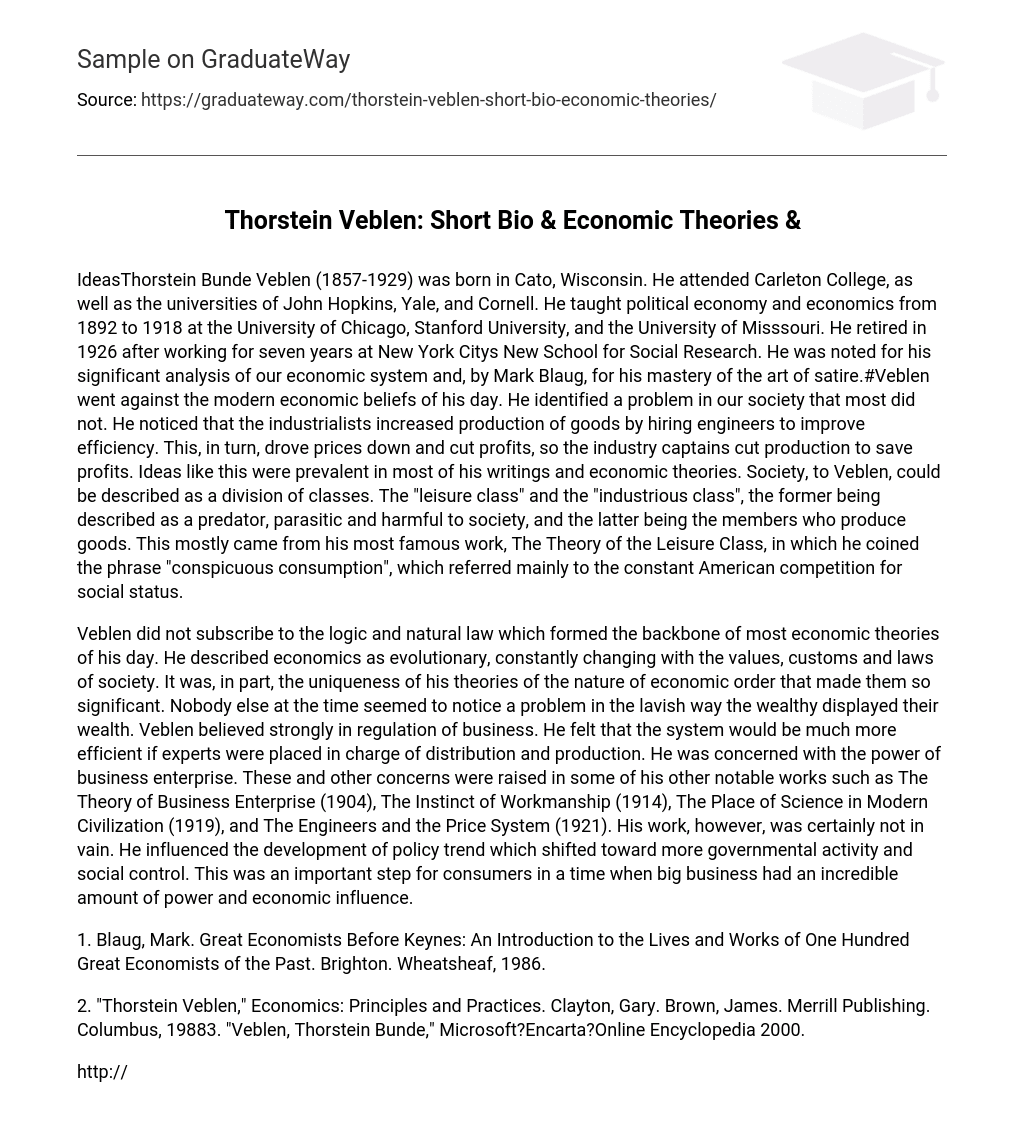IdeasThorstein Bunde Veblen (1857-1929) was born in Cato, Wisconsin. He attended Carleton College, as well as the universities of John Hopkins, Yale, and Cornell. He taught political economy and economics from 1892 to 1918 at the University of Chicago, Stanford University, and the University of Misssouri. He retired in 1926 after working for seven years at New York Citys New School for Social Research. He was noted for his significant analysis of our economic system and, by Mark Blaug, for his mastery of the art of satire.#Veblen went against the modern economic beliefs of his day. He identified a problem in our society that most did not. He noticed that the industrialists increased production of goods by hiring engineers to improve efficiency. This, in turn, drove prices down and cut profits, so the industry captains cut production to save profits. Ideas like this were prevalent in most of his writings and economic theories. Society, to Veblen, could be described as a division of classes. The “leisure class” and the “industrious class”, the former being described as a predator, parasitic and harmful to society, and the latter being the members who produce goods. This mostly came from his most famous work, The Theory of the Leisure Class, in which he coined the phrase “conspicuous consumption”, which referred mainly to the constant American competition for social status.
Veblen did not subscribe to the logic and natural law which formed the backbone of most economic theories of his day. He described economics as evolutionary, constantly changing with the values, customs and laws of society. It was, in part, the uniqueness of his theories of the nature of economic order that made them so significant. Nobody else at the time seemed to notice a problem in the lavish way the wealthy displayed their wealth. Veblen believed strongly in regulation of business. He felt that the system would be much more efficient if experts were placed in charge of distribution and production. He was concerned with the power of business enterprise. These and other concerns were raised in some of his other notable works such as The Theory of Business Enterprise (1904), The Instinct of Workmanship (1914), The Place of Science in Modern Civilization (1919), and The Engineers and the Price System (1921). His work, however, was certainly not in vain. He influenced the development of policy trend which shifted toward more governmental activity and social control. This was an important step for consumers in a time when big business had an incredible amount of power and economic influence.
1. Blaug, Mark. Great Economists Before Keynes: An Introduction to the Lives and Works of One Hundred Great Economists of the Past. Brighton. Wheatsheaf, 1986.
2. “Thorstein Veblen,” Economics: Principles and Practices. Clayton, Gary. Brown, James. Merrill Publishing. Columbus, 19883. “Veblen, Thorstein Bunde,” Microsoft?Encarta?Online Encyclopedia 2000.
http://encarta.msn.com. 1997-2000 Microsoft Corporation.
4. Veblen, Thorstein. The Theory of the Leisure Class: An Economic Study of Institutions. Macmillan. New York, 1902. 66+Words/ Pages : 490 / 24





